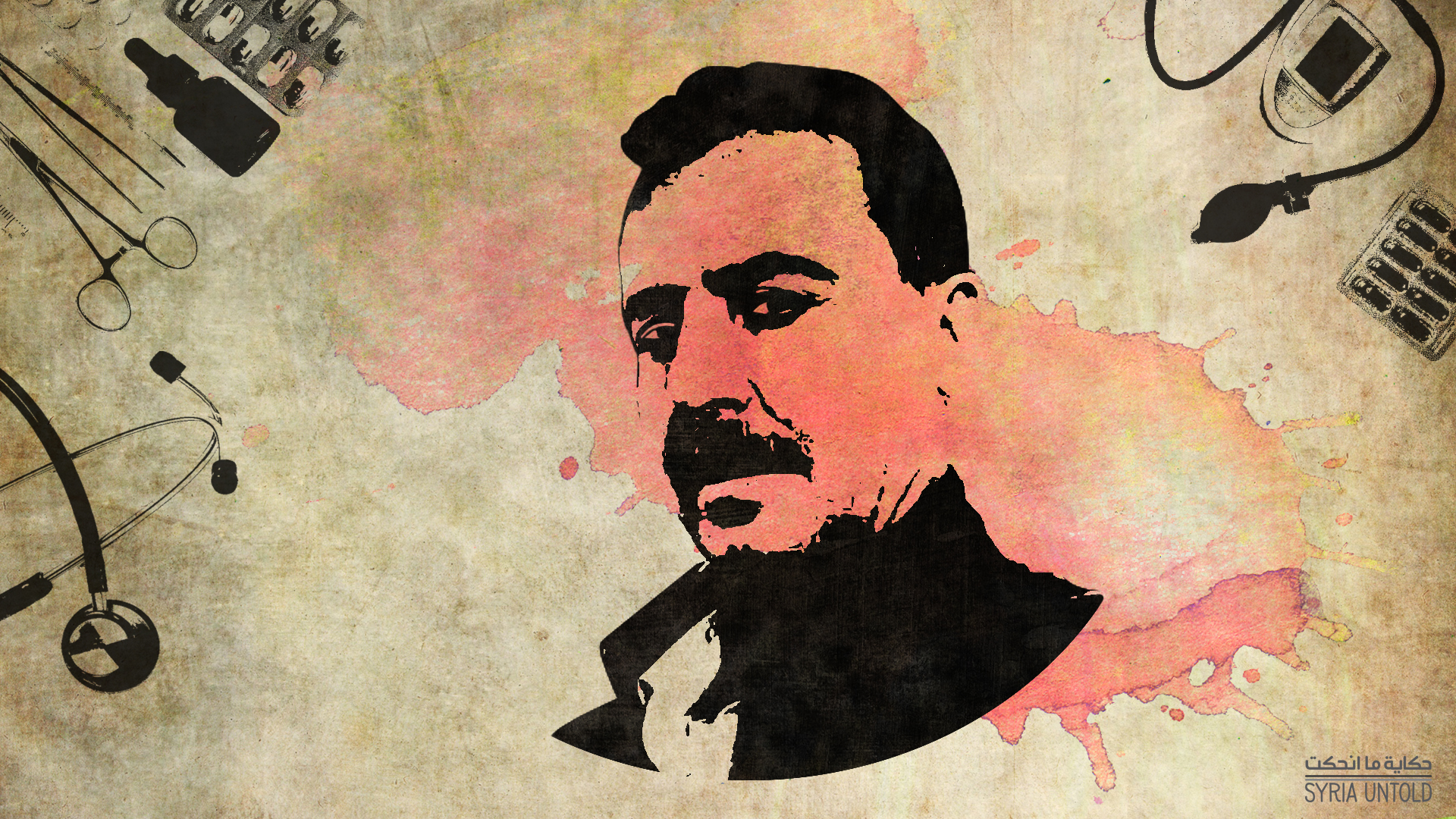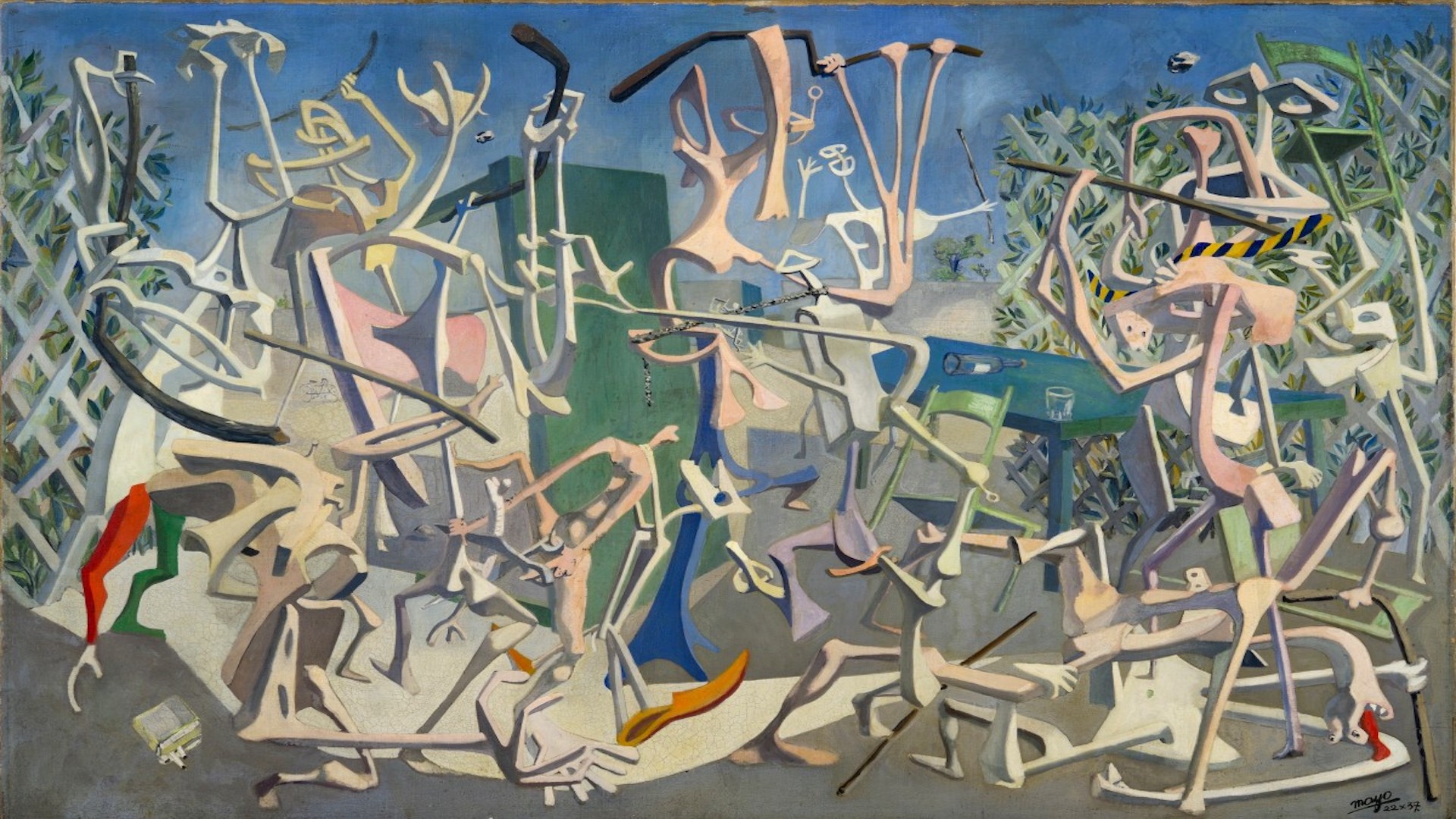Syria 'fixers' cash in on despair of prisoners' families (AFP)
“In war-torn Syria, where tens of thousands of people have disappeared into a murky web of regime jails infamous for torture, a booming trade has emerged for "fixers" offering to help families locate or save their loved ones.
Policemen, lawyers, businessmen and even lawmakers, with security and judicial contacts, demand steep fees to dig up information about a disappeared son or brother, allow a visit, reduce their sentence, or obtain their release.” Read more
Syria’s lucrative detainment market: How Damascus exploits detainees’ families for money
13 April 2021
Mending what has been broken
12 February 2021
We, the eyes of Syria (Al-Jumhuriya)
“At the outset, I had sought to document the memory of the resistance movement waged by Syrian inmates in the Israeli occupation’s prisons. This long-forgotten history is rich in meaning, significance, and symbolic value. Yet I wouldn’t wish to reduce these experiences to mere symbolism. 54 years on from its inception, this narrative is an integral part of a larger story; one of Syrian men and women, many of whom lost their lives as a result of imprisonment. Others lost their hearing, or lost years and decades through life sentences.” Read more
Syria’s Ruling Elite — A Master Class in Wasta (The Markaz Review)
“It seems almost tasteless to write about a sordid family dispute over money in a country which has suffered a decade of brutal warfare. More than half a million have died in Syria, mostly civilians; another 12 million were forced to flee their homes. Thousands of political prisoners remain ‘missing’; and reports of torture in both government and rebel prisons are rife.
Yet in many senses the little private squabble goes to the heart of the crisis. And wasta is a key ingredient — one that assumes a new order of magnitude when it involves one man controlling 60 percent of a nation’s economy.” Read more
Greek captagon bust leads to a criminal gang and the port at the heart of Syria’s booming new drug trade (OCCRP)
“In late 2018, Greek authorities busted a freighter carrying over $100 million worth of cannabis and the speed-like drug Captagon, evidence of a booming Mediterranean drug trade fueled by Syria’s civil war. An investigation into the vessel reveals a network of criminals associated with the shipment — with connections to the Assad family, a gang in Libya, and London-registered shell companies.” Read more
Syria’s perfect economic storm should not be ignored (Financial Times)
“Ten years has passed since the beginning of the Syrian war. Its refugees have spawned international headlines, but how are the people remaining in Syria doing? Not good, and over the past year it’s got much worse. According to the World Food Programme, more than 12m Syrians — 60 per cent of the population — are suffering from food insecurity. Facing increasing hardship, the vast majority of Syrian families are struggling to eat and are even cutting out basic necessities to deal with their diminished purchasing power.” Read more
A forced disappearance in Raqqa, and the empty spaces left behind
09 December 2020
Millions of Syrians now rely on just one border crossing for UN aid. How did we get here?
13 July 2020
‘Life and death’: Will Syria’s last UN aid delivery point close? (Al Jazeera)
“A critical United Nations Security Council vote in July may shut down the last humanitarian lifeline for some 4.4 million Syrians in opposition-controlled areas in the northwest.
The Bab al-Hawa border crossing at the Turkey-Syria border is the last crossing with a UN mandate allowing aid to be delivered directly to regions in need without passing through the Assad government in Damascus. About 1,000 trucks carrying humanitarian aid go through every month.” Read more
Syria bombs hospitals. Now it will help lead the World Health Organization (NPR)
“In a decision that appalled and angered Syrian opposition groups and international medical organizations, on May 28 Syria was appointed to the World Health Organization's Executive Board, made up of 34 member states. Representatives of these countries hold three-year terms in which they set the agenda for the WHO Health Assembly and help implement WHO policies.
‘It was really, really shocking,’ says Houssam al Nahhas, a researcher for the U.S.-based Physicians for Human Rights, a nonprofit that investigates and documents human rights violations.
Nahhas, a Syrian citizen now living in the U.S., says he was tortured in 2012 by the Syrian government after being placed in a regime jail for his work as a health-care provider.” Read more
What Syria's bombing of hospitals is doing to the rest of us (The National)
“Ironically, this latest crime followed a flabbergasting election last month that saw Syria elevated to the executive board of the World Health Organisation for a three-year term, despite a decade of impunity, bombing hospitals, targeting medical workers, destroying ambulances and killing first responders with so-called ‘double-tap’ strikes. This latest bombing highlights what the Syrian government thinks of the concepts of a rules-based international order and impunity in violating the tenets of international law and the norms of warfare.” Read more
A homage to the inspirational women of Raqqa (The New Arab)
“In April 2013, I visited Raqqa for the first time in my life, a month after it was taken by anti-Assad rebel forces and nine months before it fell to Islamic State group (IS), who would use it as the base of their so-called ‘caliphate’.
Like my city Idlib, Raqqa had been systematically neglected by the Syrian government, its people faced what could be described as racism, and were known as ‘Shawaya’, or semi-sedentary, a term used pejoratively to imply naivety and simplicity.” Read more







